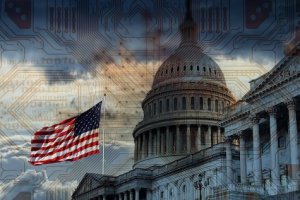Since the early 1970s, as imports of goods and services from lower-wage countries have surged, jobs have been displaced, the real wages of many or most American workers have stagnated or fallen, factories have closed, and mortality rates have risen. In places like the Midwestern “rust belt” and in many rural areas, whole towns have been devastated. A great deal of evidence directly implicates international trade and capital movements.
The reality of mixed effects from trade has become so obvious that few experts, pundits, or politicians now utter the platitudes that once pervaded public discourse: that “we all benefit from trade,” “free trade is good for everyone,” and the like. Yet – despite occasional dissenting voices – pro-trade sentiments continue to dominate mainstream U.S. public discourse under different packaging. Until very recently nearly all prominent economists, media commentators, and (until Trump) national figures in both major political parties embraced free trade agreements, offering little or no compensation for those who lose out. From 1974 until the early 2000s – when they were discontinued – Chicago Council on Global Affairs (formerly Chicago Council on Foreign Relations) surveys of “foreign policy leaders” (public officials, interest group leaders, media commentators, and the like) regularly showed that large majorities of elites favored free trade agreements and few were concerned about job losses. Even late in 2016, during the Trump campaign onslaught against trade agreements, President Barack Obama extolled the benefits of free trade. This consensus regularly found its way into the mass media and public discourse.
Given the pro-trade tilt in what Americans see and hear in the media – and the understandable tendency of people to appreciate the availability of cheap imported goods at Walmart – it is not surprising that simple closed-ended poll questions about “free trade” or “free trade agreements” (including specific agreements like NAFTA and the TPP) have generally shown a high level of support. Most polling organizations have emphasized large majority support for free trade. This has become conventional wisdom. Any complexity, ambivalence, or negativity in Americans’ attitudes about international trade has generally been downplayed or ignored.
The oversimplified conventional wisdom about trade attitudes probably arises partly from relying on closed survey questions that leave little room for ambivalence or complexity. Closed-ended questions are the bread and butter of survey research, but open-ended questions can be useful for gathering a more nuanced understanding of respondent opinions. Spontaneous, open-ended responses may signal the intensity or salience of opinion and can reveal concerns, ideas, beliefs, priorities, and policy preferences that are actually on people’s minds – even if not foreseen by investigators or evoked by closed questions.
As part of a broader study of the roots of right-wing populism (Ferguson et al., 2020 https://www.tandfonline.com/doi/abs/10.1080/08911916.2020.1778861 ), we have found that open-ended responses reveal considerably more complexity – and more ambivalence and negativity – in Americans’ views of international trade than has been inferred from widely cited closed questions. This new INET Working Paper presents our case for this conclusion.









